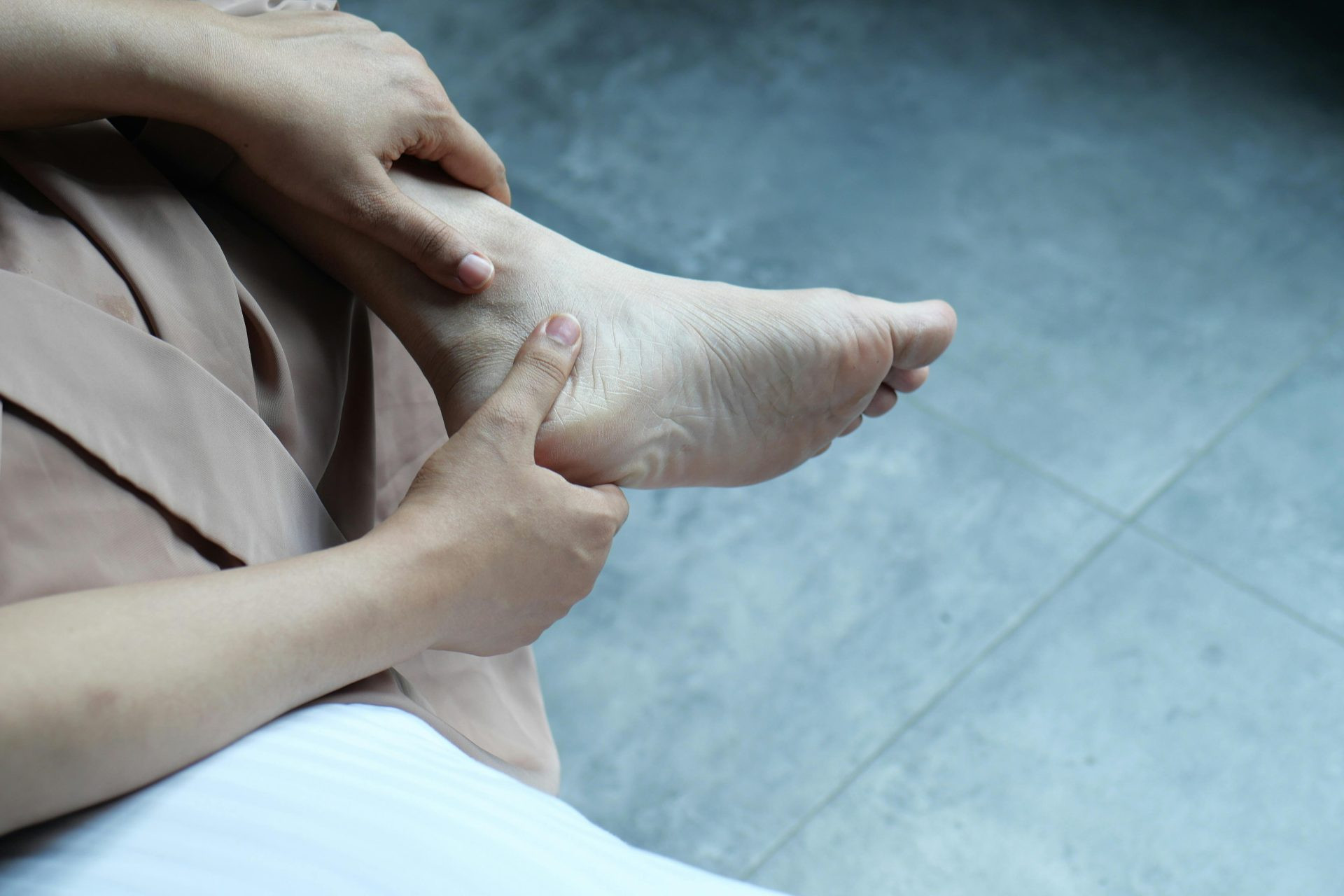Plantar fasciitis is one of the most common causes of heel pain, affecting people of all ages and activity levels. It occurs when the plantar fascia—a thick band of tissue running along the bottom of the foot—becomes inflamed due to strain or overuse. The pain is often worse in the morning or after long periods of standing, making it difficult to stay active and comfortable.
At Melville Wellness Centre, our experienced podiatrist in Melville regularly helps patients from across Perth recover from plantar fasciitis and return to pain-free living. Understanding the causes of this condition is the first step in both treatment and prevention.
1. Poor Footwear
Wearing shoes that lack proper arch support, cushioning, or stability can place extra stress on the plantar fascia. High heels, thin-soled shoes, or worn-out sneakers are often culprits.
Prevention Tip: Choose supportive shoes with good arch support and cushioning. A podiatrist in Perth can also recommend custom orthotics to provide additional support tailored to your feet.
2. Overuse and High-Impact Activities
Runners, athletes, and people with physically demanding jobs are at higher risk of plantar fasciitis due to repetitive strain. Sudden increases in exercise intensity or duration can also trigger heel pain.
Prevention Tip: Gradually increase training loads, wear proper footwear for your sport, and incorporate rest days to allow the plantar fascia to recover.
3. Foot Structure and Biomechanics
Flat feet, high arches, or abnormal walking patterns can place uneven stress on the plantar fascia. Over time, this can cause irritation and inflammation.
Prevention Tip: Seek an assessment from a podiatrist in Melville who can identify biomechanical issues and prescribe orthotics or exercises to correct imbalances.
4. Tight Calf Muscles and Achilles Tendon
Limited flexibility in the calves or Achilles tendon increases tension on the plantar fascia, particularly during walking, running, or standing for long periods.
Prevention Tip: Regularly stretch the calves and Achilles tendon to improve flexibility. Your podiatrist can recommend safe stretching and strengthening routines to support foot health.
5. Excess Weight or Sudden Weight Gain
Carrying extra body weight places added pressure on the feet, particularly the plantar fascia. This is also why plantar fasciitis is common during pregnancy.
Prevention Tip: Maintain a healthy weight through balanced nutrition and low-impact exercise. If needed, consult a podiatrist in Perth for advice on reducing strain while staying active.
How a Podiatrist Can Help
If heel pain persists, seeing a podiatrist is the best step forward. At Melville Wellness Centre, our podiatrists provide comprehensive care for plantar fasciitis, including:
-
Custom orthotics for foot support
-
Stretching and strengthening programs
-
Footwear advice tailored to your needs
-
Hands-on therapies and modern treatment techniques
-
Guidance on activity modification to support recovery
Take the First Step Towards Relief
Plantar fasciitis can be frustrating, but with the right treatment and prevention strategies, you can stay active and pain-free. If you’re experiencing heel pain, don’t ignore it. Book an appointment with a qualified podiatrist in Melville, Perth today at www.melvillewellness.com.au and take the first step towards healthier, happier feet.
